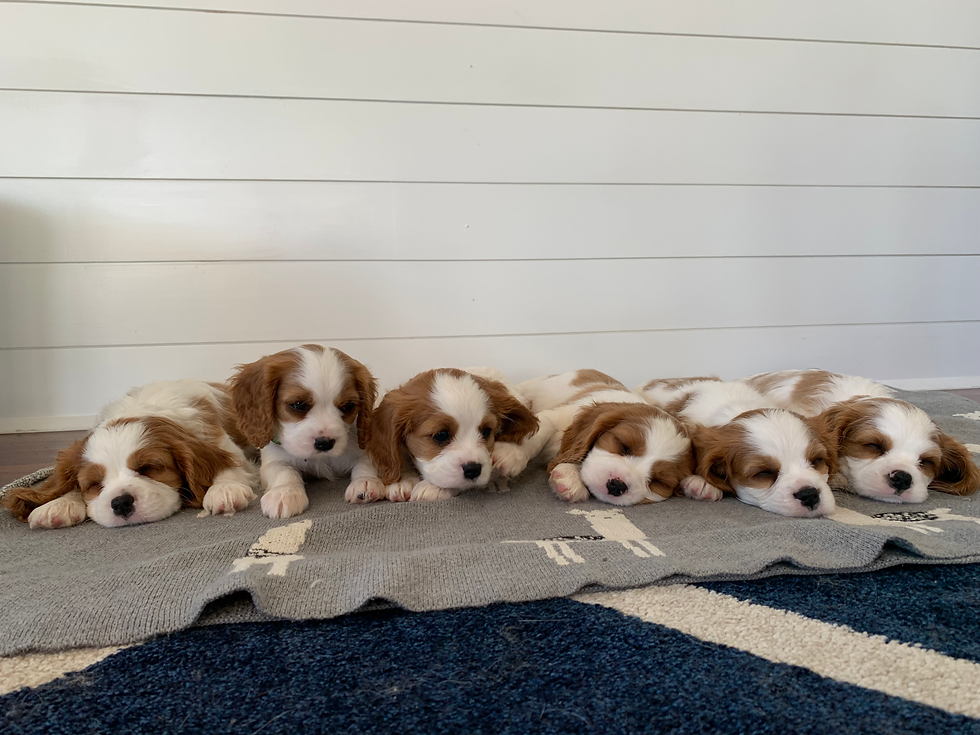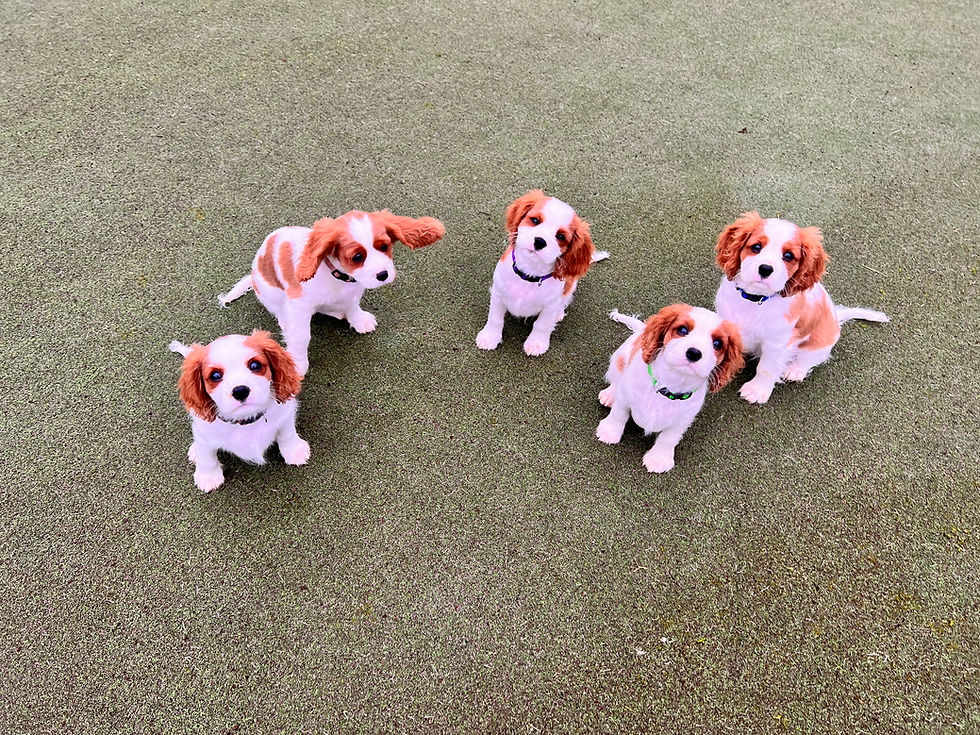Puppy Culture: What is involved in the training & development
- Aug 4, 2025
- 2 min read

What is Puppy Culture?
Puppy Culture is a comprehensive program designed to enhance the early development of puppies. It focuses on the critical socialisation and training phases that occur from birth to 12 weeks of age.
This program emphasises the importance of positive experiences during the early weeks of a puppy's life, shaping their behaviour, temperament, and adaptability as they grow into adult dogs.
Key Components of Puppy Culture
Puppy Culture encompasses several key components that contribute to the overall development of puppies:
Early Socialisation: Exposing puppies to various environments, people, and other animals to build confidence and reduce fearfulness.
Positive Reinforcement Training: Using rewards-based methods to teach basic commands and desirable behaviours, promoting a positive relationship between puppies and their humans.
Enrichment Activities: Providing mental stimulation through toys, puzzles, and interactive play to encourage cognitive development.
Health and Wellness: Ensuring proper nutrition, veterinary care, and hygiene practices to support physical growth and development.
Life Skills: Teaching puppies essential skills, such as how to navigate different surfaces, sounds, and situations they may encounter in everyday life.
Why is Puppy Culture Important?
The importance of Puppy Culture in a puppy's development cannot be overstated. Here are several reasons why it is crucial:
1. Critical Development Period
Puppies undergo significant physical and psychological changes during their first 12 weeks. This is a critical period for socialisation, and experiences during this time can have lasting effects on their behaviour and temperament. Puppy Culture ensures that puppies are exposed to a variety of stimuli, helping them become well-adjusted adults.
2. Reducing Behavioural Problems
Proper socialisation and training during the early weeks can prevent many common behavioural issues, such as aggression, fearfulness, and anxiety. By participating in Puppy Culture, puppies learn how to interact appropriately with other dogs and humans, reducing the likelihood of problematic behaviours later in life.
3. Building Confidence
Puppies that experience positive socialisation and training are more likely to develop confidence. This confidence allows them to adapt to new situations and environments throughout their lives.
A well-socialised puppy is less likely to be fearful or anxious when faced with novel experiences.
4. Strengthening the Human-Canine Bond
Puppy Culture emphasises positive reinforcement and interactive training, which helps strengthen the bond between the puppy and their owner. A strong relationship fosters trust and communication, making training and daily interactions more enjoyable and effective.
5. Lifelong Skills
The skills and experiences gained during the Puppy Culture program lay the foundation for a puppy's future. Puppies learn essential life skills that will help them navigate their environments, interact with other pets, and integrate into family life seamlessly.
Puppy Culture at La Rose Cavaliers
Puppy Culture is a vital program that we adopt at La Rose Cavaliers. It supports the healthy development of puppies during their formative weeks. By focusing on socialisation, training, and enrichment,
Puppy Culture helps ensure that puppies grow into well-adjusted, confident adult dogs. Investing time and effort into a puppy's early development through this program can lead to a lifetime of happiness and companionship for both the dog and their owner.

When you adopt a puppy from La Rose Cavaliers, we include training in our welcome pack, to support the continuation of Puppy Culture training when you get home with your puppy.










Comments